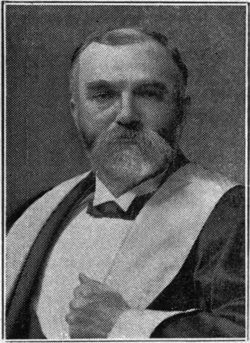Deep and widespread sorrow attends the death of Alexander Macbain, LL.D., so well known as one of our foremost Celtic scholars. The sad event was startling in its suddenness. Dr. Macbain was only in his fifty-second year; he left Inverness, with which his name has been so long honourably associated, on Wednesday, 3rd April, in his usual health, on business connected with the promised new edition of his Gaelic Etymological Dictionary; on Friday afternoon came the news that he was no more. He

had died on Thursday night, of cerebral hæmorrhage. In accordance with his own desire, his body now lies in the lonely churchyard of Rothiemurchus in his native Badenoch, under the shadow of Cairngorm.
It is difficult for his friends, with the echoes of his voice still in their ears, and the picture of his familiar presence still fresh in their minds, to realise that he is truly gone. It is more difficult at this moment to appraise his life's work, as teacher and as man of science. Defect here is inevitable and perhaps matters little after all. For his was no bubble reputation, but one that will assuredly stand the test of time; and as long as Celtic language and literature are studied, Macbain shall have his due.
Alexander Macbain was born in Glenfeshie, in Badenoch, Inverness-shire, on 23nd July 1855. His father was John Macbain. The Macbains belong to the great Clan Chattan, and are proud of the fact. His early

